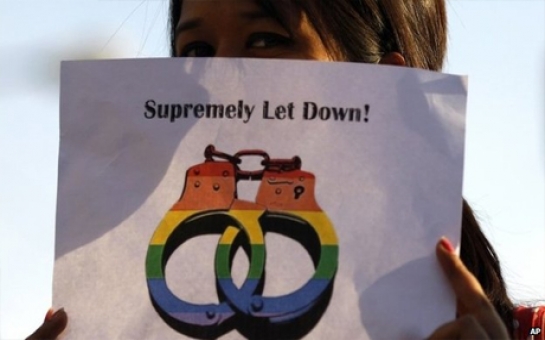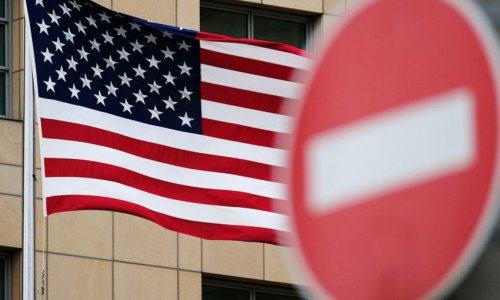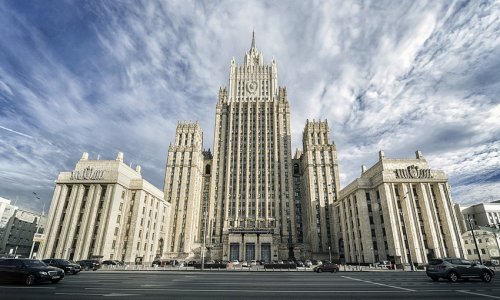Follow us !
India media: Gay ruling 'retrograde'
World
23:21 | 12.12.2013

India media: Gay ruling 'retrograde'
Media in India are expressing outrage over the Supreme Court decision to uphold a law that criminalises homosexuality.Wednesday's ruling reverses a landmark 2009 Delhi High Court order which had decriminalised homosexual acts, BBC reported.According to Section 377 of the Indian Penal Code (IPC), a 153-year-old colonial-era law, a same-sex relationship is an "unnatural offence" and punishable by a 10-year jail term.The court said it was up to parliament to legislate on the issue.Most papers feel the court has taken a "tragic decision" by leaving the final call with parliamentarians.'Retrograde attitude'The Times of India says the court's decision "to re-impose the 19th century ban on homosexuality is not just tragic; it's ironic too"."Its sudden deference to parliamentary prerogative in the context of Section 377 smacks not only of a retrograde attitude but selectivity as well," it says.The paper sympathises with the cause of gay rights activists and sees "the ruling as a setback to gender justice, human rights and even public health"."The horrendous but impractical implication of the judicial U-turn is that they (homosexual community in India) have to go back into the closet," the paper adds.The Supreme Court has given several landmark judgements in recent months - including a ban on convicted lawmakers from holding office - to earn respect from the media and members of the public.But its ruling on "criminalising homosexuality" runs the risk of overturning that trust, papers say."At a time of high judicial activism that has seen the Supreme Court deal with countless matters of public importance and passing orders that point to the distilled wisdom of an important arm of our society, such a ruling appears particularly socially regressive," says The Asian Age.It goes on to say that the ruling "has taken the country backwards".'Sad and shameful'Some papers see the verdict as a measure to "deny basic human rights" to a section of the country's population.The Indian Express says the ruling is "sad and shameful" because Section 377 is "mostly used to harass, humiliate and deny freedom to consenting homosexual adults"."The court, in this instance, seems to have abandoned its duty to protect fundamental rights, its capacity to lead progressive change, and left this difficult task to parliament," the paper adds.For The Hindu, the move "has enthroned medieval prejudice and dealt a body blow to liberal values and human rights".Newspapers also feel such a law has no place in a democratic country that aims to be a global superpower and fear for the future of the homosexual community in India.The Hindustan Times says the decision has plunged India into "a less tolerant era"."We cannot lose sight of the fact that fear of persecution may leave the community feeling marginalised and send it into hiding. Importantly, this may deny LGBTs [lesbian, gay, bisexual, transgender] access to healthcare services, thus increasing the risk of sexually transmitted diseases," it adds.Most editorial writers are sceptical over the chances of the government moving quickly to make a fair law that honours the rights of the gay community.The Indian Express says "preparing and bringing up the law will be difficult in the last stages of this government's tenure" but urges the MPs to "remember that the right to love whom you love, the need to stop living a lie, is more significant than other abstract political rights".Adds The Hindu: "Barring a sudden dawning of a humane sense of fairness all around, Section 377 is here to stay in the medium term with all its horrific consequences."ANN.Az










